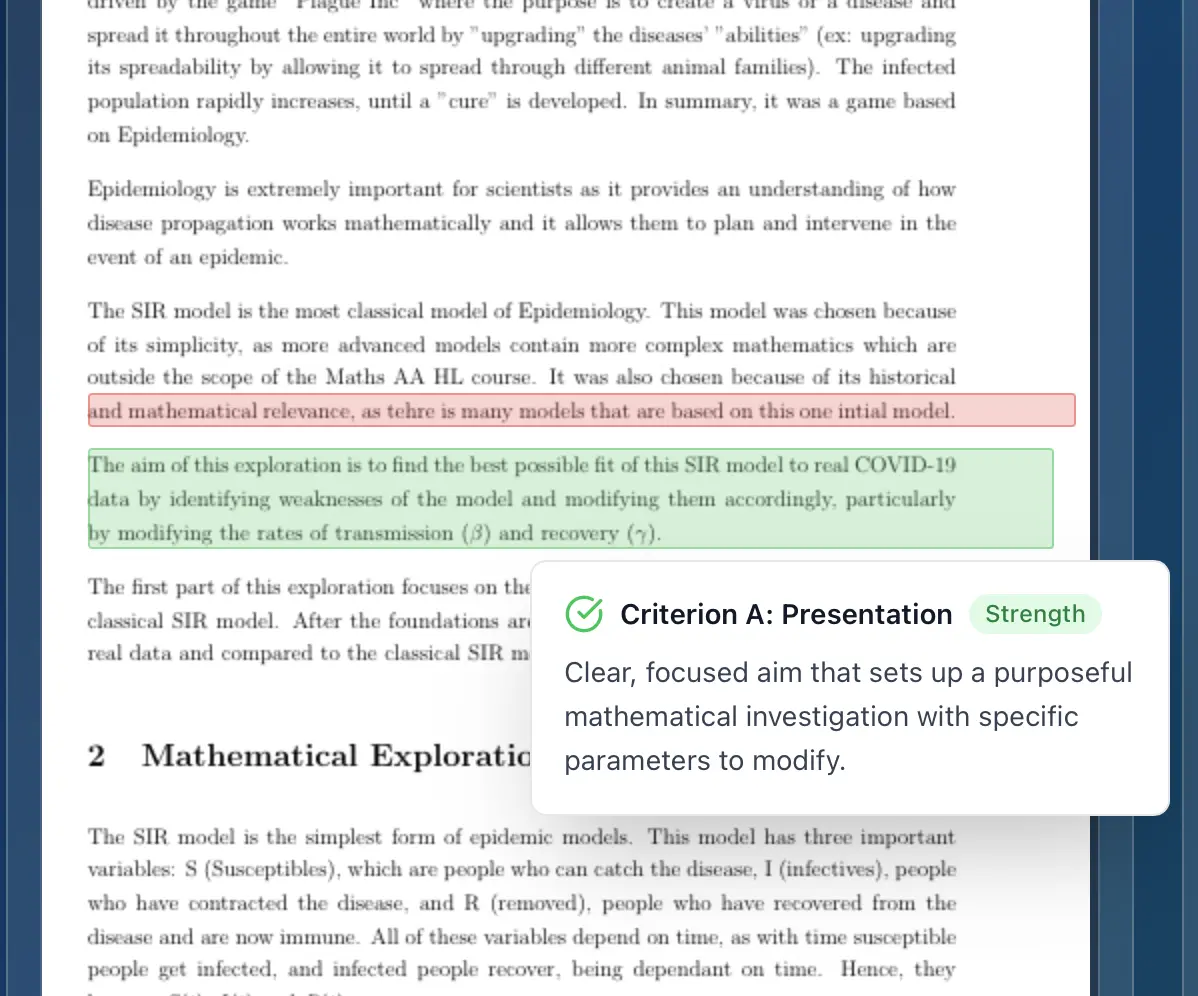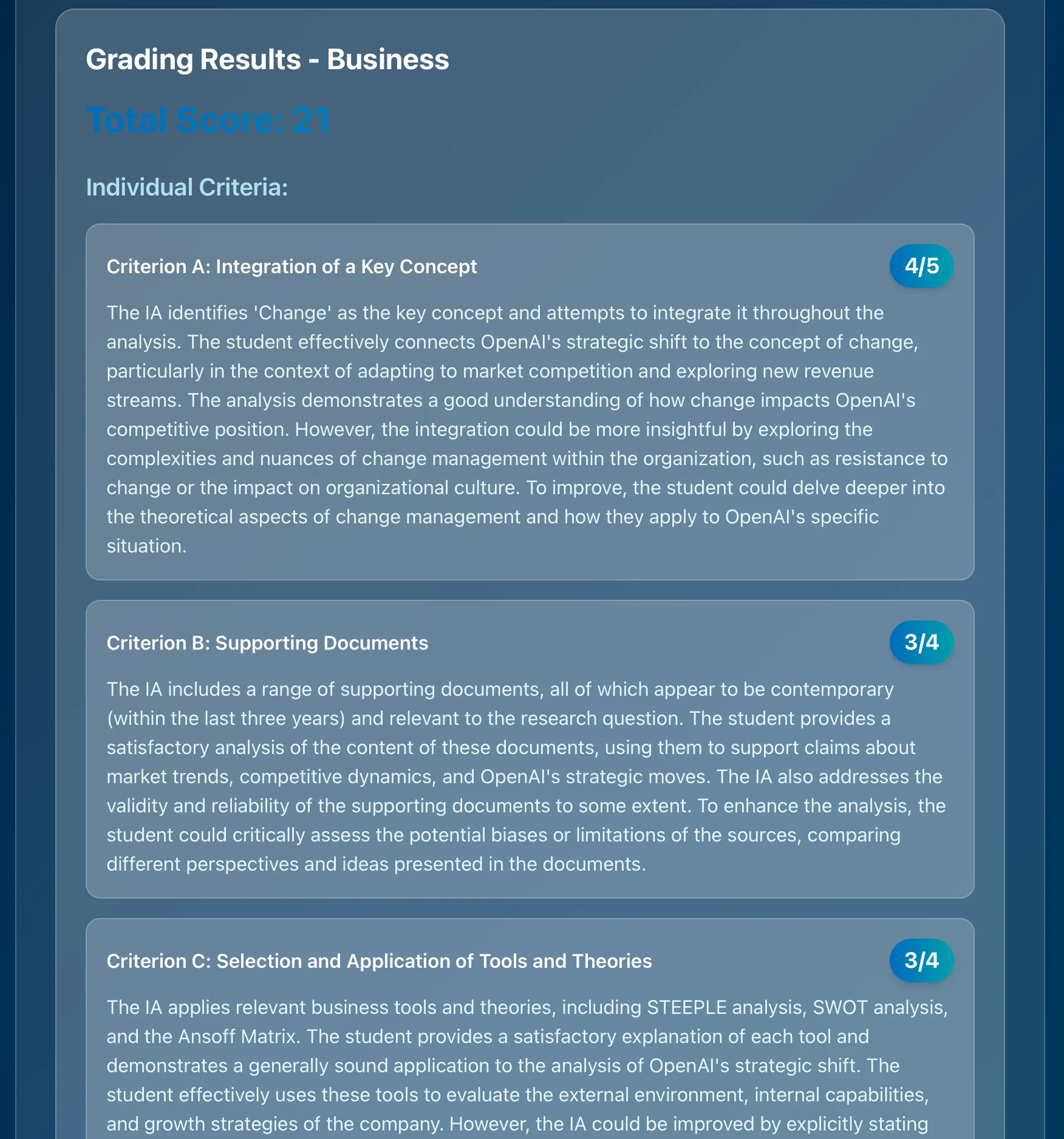The Pomodoro Technique for IB Study Sessions
Are you an IB student feeling overwhelmed by the sheer volume of content you need to master? Do you struggle to stay focused during long study sessions? The Pomodoro Technique, a simple yet powerful time management method, can be your secret weapon. This guide will show you how to effectively use the Pomodoro Technique to maximize your focus, minimize procrastination, and ultimately, boost your IB scores. We'll cover everything from the basics to advanced strategies, ensuring you're equipped to tackle even the most challenging IB subjects. Let's dive in!
What is the Pomodoro Technique and Why is it Perfect for IB Students?
The Pomodoro Technique is a time management method based on the idea that breaking work into focused intervals, separated by short breaks, can improve mental agility and productivity. It typically involves working in 25-minute intervals (called "Pomodoros"), followed by a 5-minute break. After four "Pomodoros," you take a longer break of 20-30 minutes.
So, why is this technique particularly well-suited for IB students? The IB curriculum is notoriously demanding, requiring students to juggle multiple subjects, Internal Assessments (IAs), Extended Essays (EEs), and the Theory of Knowledge (TOK) course. This can easily lead to burnout and decreased focus. The Pomodoro Technique offers a structured approach to break down these large tasks into manageable chunks, making the overall workload less daunting and improving concentration. It's a fantastic IB exam strategy to implement during your revision period.
Struggling with IB Assessments?
Get instant, detailed feedback on your work with AI that understands IB criteria.

Setting Up Your Pomodoro Study Sessions for IB Success
Before you jump in, it's crucial to set up your Pomodoro sessions effectively. Here's a step-by-step guide:
- Define Your Task: Be specific. Instead of "Study Biology," try "Review the Krebs Cycle in Biology." This helps you stay focused and avoid task-switching.
- Set a Timer: Use a physical timer, a smartphone app, or an online Pomodoro timer. The key is to have a clear visual reminder of the time remaining.
- Eliminate Distractions: This is crucial. Turn off notifications on your phone, close unnecessary tabs on your computer, and find a quiet study space. Tell your family or roommates that you need uninterrupted time.
- Work with Focused Intensity: During the 25-minute Pomodoro, dedicate your full attention to the task at hand. Avoid multitasking or getting sidetracked.
- Take Short Breaks: When the timer rings, take a 5-minute break. Get up, stretch, walk around, grab a drink, or do something completely unrelated to your studies. This helps refresh your mind and prevent fatigue.
- Take Longer Breaks: After every four Pomodoros, take a longer break of 20-30 minutes. Use this time to eat a snack, listen to music, or do something you enjoy.
- Review and Adjust: At the end of each study session, reflect on what worked well and what didn't. Adjust your approach as needed.
Example: Let's say you're working on your History IA. You could break it down into the following Pomodoros:
- Pomodoro 1: Research primary sources related to your research question.
- Pomodoro 2: Outline the main arguments for your IA.
- Pomodoro 3: Write the introduction paragraph.
- Pomodoro 4: Develop the first body paragraph with evidence.
Adapting the Pomodoro Technique for Different IB Subjects
The beauty of the Pomodoro Technique is its adaptability. You can tailor it to suit the specific demands of different IB subjects:
- Science Subjects (Biology, Chemistry, Physics): Use Pomodoros for problem-solving, reviewing concepts, and working through practice questions. Focus each Pomodoro on a specific topic or skill.
- Humanities Subjects (History, Economics, Geography): Use Pomodoros for reading, note-taking, essay writing, and analyzing sources. Break down large readings into smaller, more manageable chunks.
- Language Subjects (English, Spanish, French): Use Pomodoros for vocabulary memorization, grammar practice, reading comprehension, and writing exercises.
- Mathematics: Dedicate Pomodoros to solving specific types of problems, reviewing formulas, and working through past papers.
Common Challenges and Mistakes When Using the Pomodoro Technique for IB
While the Pomodoro Technique is effective, students often encounter challenges:
- Distractions: The biggest challenge is staying focused during the 25-minute Pomodoro. Combat this by minimizing distractions beforehand and using website blockers or noise-canceling headphones.
- Perfectionism: Don't get bogged down in trying to perfect every detail during a Pomodoro. Focus on making progress and refining later.
- Rigidity: The Pomodoro Technique is a guideline, not a rigid rule. If you're on a roll, you can extend a Pomodoro slightly. Conversely, if you're struggling, you can shorten it.
- Burnout: Taking breaks is crucial. Don't skip breaks or try to cram too many Pomodoros into a single session.
- Not Planning: Failing to plan your tasks beforehand can lead to wasted time and decreased focus.
Pro Tip: Get AI-Powered Grading
Stop second-guessing your grades. Get instant feedback aligned with official IB rubrics.

Advanced Pomodoro Strategies for IB Success
Once you've mastered the basics, you can explore these advanced strategies:
- Pomodoro and Eisenhower Matrix: Combine the Pomodoro Technique with the Eisenhower Matrix (urgent/important) to prioritize your tasks effectively. Focus your Pomodoros on the most important tasks first.
- Pomodoro and Time Blocking: Integrate the Pomodoro Technique into your overall time blocking schedule. Allocate specific blocks of time for studying, and then use Pomodoros within those blocks.
- Pomodoro and Active Recall: Use the 5-minute breaks for active recall. Briefly summarize what you learned during the previous Pomodoro. This helps reinforce your understanding.
- Pomodoro and Spaced Repetition: Combine the Pomodoro Technique with spaced repetition software (like Anki) to optimize your learning and retention.
- Adjust Pomodoro Length: Experiment with different Pomodoro lengths to find what works best for you. Some students find that 30-minute or 45-minute Pomodoros are more effective.
Technology and Modern Assessment in the IB: How AI Can Help
Technology is transforming the way we learn and assess in the IB. AI-powered tools are becoming increasingly valuable for both students and teachers. For example, AI grading assistants are revolutionizing how assessments are evaluated, providing instant, accurate, and detailed feedback.
Marksy, a leading AI grading assistant specifically designed for the International Baccalaureate, helps teachers provide consistent, detailed feedback on IB assessments. It uses official IB rubrics to score student work, offering criterion-by-criterion feedback and suggestions for improvement. This not only saves teachers valuable time but also ensures that students receive fair and objective assessments. Marksy helps students understand exactly how to improve their work based on the official IB guidelines.
The use of AI tools like Marksy ensures accuracy and fairness in assessment, as the AI algorithms are trained on official IB criteria. This eliminates potential biases and inconsistencies that can sometimes occur with manual grading. Furthermore, it frees up teachers' time, allowing them to focus on providing personalized support and guidance to their students.
Conclusion: Unlock Your IB Potential with the Pomodoro Technique
The Pomodoro Technique is a powerful tool that can help you conquer procrastination, improve focus, and ultimately, achieve your academic goals in the IB. By breaking down your workload into manageable chunks, taking regular breaks, and adapting the technique to your specific needs, you can unlock your full potential. Remember to experiment with different strategies, track your progress, and adjust your approach as needed.
Ready to take your IB studies to the next level?
- Start using the Pomodoro Technique today! Experiment with different timers and apps to find what works best for you.
- Explore AI-powered tools like Marksy to enhance your learning and assessment. See how AI can help you get detailed feedback on your work and improve your understanding of the IB criteria.
Try Marksy for free today and experience the difference! [Link to Marksy Free Trial]